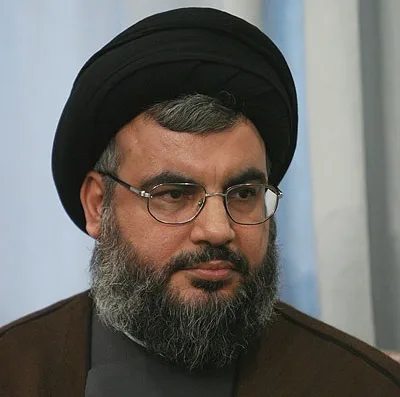As tensions escalate in the Middle East, Hezbollah’s leader asserts unwavering support for Gaza, compounding fears of a wider regional conflict
The leader of Hezbollah, Sayyed Hassan Nasrallah, has issued a stern warning, indicating that the conflict between his organization and Israel could intensify if the Israeli military operations in Gaza do not cease. Nasrallah’s declaration came amid ongoing skirmishes along the Lebanon-Israel border, which have seen both sides exchange fire in recent months.
This statement aligns with Hezbollah’s longstanding support for Hamas, the governing body of Gaza, highlighting a deep-seated alliance against Israeli military actions. Nasrallah emphasized the inseparable bond between the Lebanese and Gaza fronts, declaring their connection as “definitive, final, and conclusive.”
The conflict has already displaced tens of thousands of people in the region, with many in northern Israel being forced to evacuate their homes. The Israeli government has expressed its intention to secure these areas, allowing displaced families to return by the start of the new school year on September 1. However, Nasrallah’s recent statements suggest that such plans may be jeopardized if the Gaza conflict continues.
Amidst this backdrop, the Israeli military has intensified its operations in Gaza, particularly in the southern city of Rafah and the northern Jabalia refugee camp. These actions have resulted in significant casualties and have raised international concerns about the humanitarian impact of the conflict.
Nasrallah also highlighted the regional dimensions of the conflict, noting that military support for Hamas from Iran-backed groups in Iraq, Yemen, and Lebanon has been crucial in exerting pressure on Israeli forces. This regional involvement underscores the potential for a larger conflict, drawing in multiple actors across the Middle East.
Efforts by Egypt and Qatar to mediate a ceasefire faltered last week, further complicating the prospects for peace. As hostilities continue, the international community remains concerned about the escalating violence and the potential for this conflict to expand beyond Gaza and Lebanon.
Analysis:
The ongoing conflict poses significant political challenges, not only for Israel and Hezbollah but also for the broader Middle East. The durability of Hezbollah’s alliance with Hamas and their combined resistance against Israeli military actions could significantly influence regional dynamics, potentially drawing in more stakeholders and exacerbating geopolitical tensions.
Economically, the continuous state of warfare threatens the stability of local economies, disrupts trade routes, and exacerbates poverty and displacement in the affected regions. Sociologically, the conflict impacts community cohesion and fuels cycles of violence and retaliation that could have long-lasting effects on the civilian populations involved.
From a security perspective, the potential spread of the conflict across borders could strain international diplomatic relations and challenge global peacekeeping efforts. The involvement of multiple countries and non-state actors complicates the path to a ceasefire and sustainable peace, highlighting the intricate web of interests and alliances in the region.
